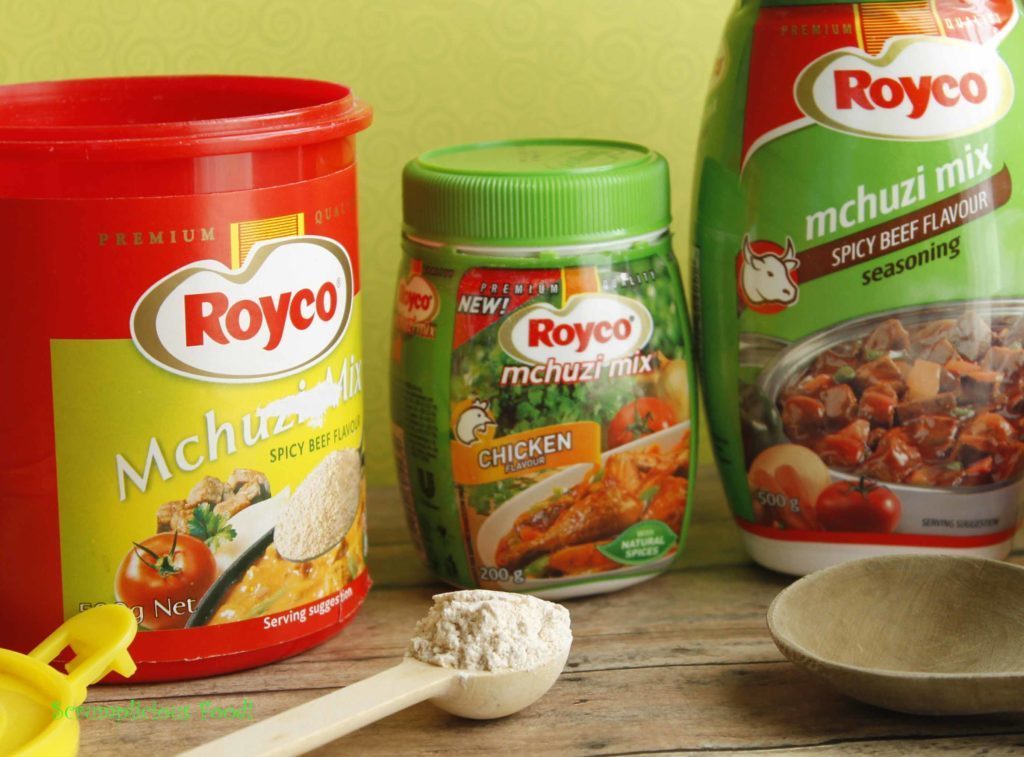advertisement
Royco Is Safe For Consumption, KNDI Says

The Kenya Nutritionists and Dieticians Institute (KNDI) has released a landmark consumer study report on Royco Mchuzi Mix (beef) brand, revealing that the product is safe and the ingredients in the mix have scientifically proven health benefits as spices and herbs.
KNDI, in collaboration with Unilever Company, engaged in a self-regulation study of Royco Mchuzi Mix with a focus on its effect on common health claims. This was done to educate the Kenyan public on the health and dietary claims associated with the product.
The study, conducted by KNDI, entailed a value chain process analysis at Unilever Company Limited Factory as well as a cohort study on common health claims associated with consuming Royco Mchuzi Mix. The research was geared towards educating the public on good dietary and nutrition habits as well as building consumer confidence in the nutritional value of the brand, amid gross misconceptions among consumers and local doctors.
advertisement
The study of the composition and functionalities of the ingredients used in Royco Mchuzi Mix revealed the nutritional value of the natural, sun-dried herbs and spices that enhance the flavor and aroma unique to local foods. Counter to prior negative consumer perceptions of Royco Mchuzi Mix, the findings of the study confirm that regular consumption of Royco Mchuzi Mix in meals enhances the health and nutritional benefits of these spices, namely coriander, garlic, fennel, cumin, turmeric, methee/fenugreek, and paprika. The findings revealed a 64.6% consumer preference for Royco Mchuzi Mix as a savory spice and countered some of the negative nutritional claims associated with the spice in recent years.
“KNDI has a mandate to jointly participate actively in the review of foods and food supplements with nutrition and nutrition claims to ensure nutritional and dietary standards are maintained. We are proud to share this research to educate the public and recognize Royco Mchuzi Mix for its nutritional value,” said Dr. David Okeyo, KNDI Chief Executive Officer.
“Some studies have reviewed spices and herbs that are used to formulate Royco Mchuzi Mix which include corriander, garlic, fennel, cumin/turmeric, methee/fenugreek and paprika. These products are well documented for nutrition and health benefits in many empirical studies.This implies that consumption of Royco Mchuzi Mix would enhance availability of these useful spices for human nutrition enhancement.
advertisement
In his statement on robustness of methods applied in research, he added that “an in-built cross-over cohort experiment was conducted in various households across Nairobi, Kisumu and Mombasa to determine the incidents of heartburn and stomach upset after meals based on standardized recipes for beef and mixed vegetables. Despite the literature review showing no links of cancer and no serious effect in cases of heartburn , consumer’s negative perception of Royco Mchuzi Mix could largely be driven by lack of knowledge of Royco’s ingredients and unproven claims of links to cancer.”
As a result of the study findings, KNDI certified, register Royco Mchuzi Mix (beef) in compliance with Sections 6(j) read together with Section 36(2) of Cap 253B and its 2019 Amendment. This has now culminated to endorsement of Royco Mchuzi Mix (beef) brand for culinary utility and health benefits.
“Royco has been formulated with natural, organic and nutritious ingredients since inception. We’re proud to share this study and continue to deliver flavor and nutritional value as the trusted taste of Kenya,” remarked Luck Unilever Kenya Managing Director.
advertisement
Further commenting on the endorsement, Luck said: ‘’Royco Mchuzi Mix has been the preferred flavor in our homes for generations upon generations. This endorsement by KNDI shows that we remain steadfast in delivering a product that is packed with nutritious and healthy ingredients that deliver the original taste and flavor of Mchuzi Mix.’’
The research was conducted to educate the public on good dietary and nutrition habits and build consumer confidence in the nutritional value of the brand, amid gross misconceptions among consumers and local doctors.
Conclusion is it safe, yes or No